
Sign up to receive updates, provide ideas, and share how you will use Climate Solutions 101 in your classroom or community.
Your climate solutions journey begins now. Filled with the latest need-to-know science and fascinating insights from global leaders in climate policy, research, investment, and beyond, this video series is a brain-shift toward a brighter climate reality.
Climate Solutions 101 is the world’s first major educational effort focused solely on solutions. Rather than rehashing well-known climate challenges, Project Drawdown centers game-changing climate action based on its own rigorous scientific research and analysis. This course, presented in video units and in-depth conversations, combines Project Drawdown’s trusted resources with the expertise of several inspiring voices from around the world. Climate solutions become attainable with increased access to free, science-based educational resources, elevated public discourse, and tangible examples of real-world action. Continue your climate solutions journey, today.
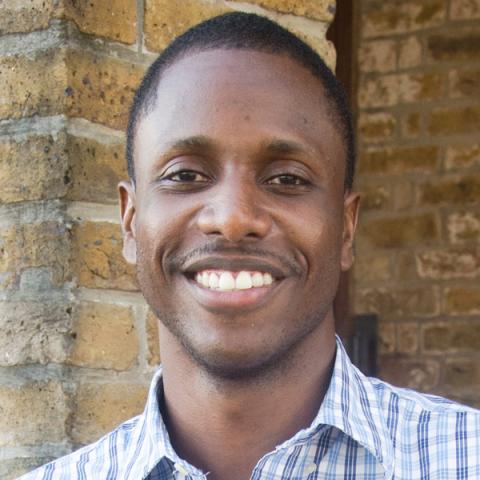

Former Fellow for Transportation and Buildings, Project Drawdown
Allard advances solutions to the climate challenge by sharing his broad knowledge of transportation systems and their impact on our climate. His specialties include: sustainable transport, passenger intermodality, intercity transport, competitive issues in transportation, and cooperation among transportation systems. Beyond these topics, Allard has published peer-reviewed research and presented at international conferences on transport solutions to reduce climate change, and on mass transit, high-speed rail, car-driver support technologies, and systems design that encourages socially optimum behavior. Prior to joining Project Drawdown, Allard earned degrees from the Massachusetts Institute of Technology as well as the University of Lisbon in Portugal. Follow him on Twitter and LinkedIn.
Hear more about transportation and emissions sources in Unit 3, which covers the biggest slices of the global emissions pie.


Full Professor, Federal University of Viçosa
Costa has dedicated his career to geosciences, with a special emphasis on climatology. From the study of large-scale hydrology to micrometeorology, Costa is fascinated by the interactions between Earth’s air, land, and water. He earned his B.A. and M.S. from Brazil’s University Federal of Viçosa, and his doctorate in atmospheric and ocean sciences from the University of Wisconsin-Madison. Today, Costa is a full professor at his alma mater, the Federal University of Viçosa. Visit him online.
Hear more about the sources of greenhouse gas emissions in Unit 3, which brings the path to a safer, low-carbon economy into sharper relief.
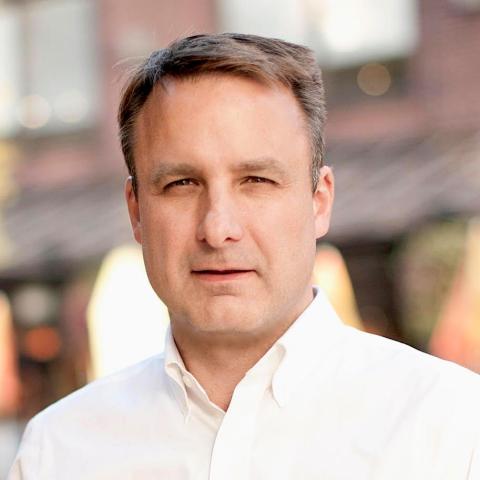

Executive Director, Project Drawdown
Foley – host of Climate Solutions 101 – is a world-renowned environmental scientist, sustainability expert, author, and public speaker. As Director of Project Drawdown, he focuses on understanding our changing planet, and finding new solutions to sustain the climate, ecosystems, and natural resources we all depend on. Prior to joining the organization, Foley led the California Academy of Sciences – the greenest museum on Earth – and dedicated 15 years at the University of Wisconsin, where he founded the Center for Sustainability and the Global Environment. An award-winning scientist and author on numerous scientific papers, he is also committed to mentoring young scientists and bringing a message of possibility and change to scientific and lay audiences alike. Follow him on Twitter, visit Project Drawdown’s website, and read his posts on Medium.
Explore this wide-ranging video course with Foley as your co-pilot. Start with Unit 1, now.
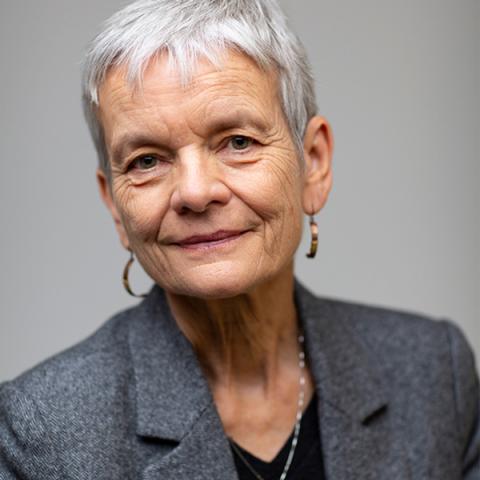

Mary Laird Professor and Dean of the College of the Environment, University of Washington
Graumlich is the Mary Laird Wood Professor and inaugural dean of the College of the Environment at the University of Washington. As dean, she leads a College with unparalleled depth and breadth in environmental systems: from the forests to the seas, and from the center of the earth to the edges of the solar system. As a scholar, Graumlich pioneered the use of tree-ring data to understand long-term trends in climate. She has held several faculty positions, fellowships, and directorships, and was elected to both the Board of Directors and presidency of the American Geophysical Union (AGU). Follow Graumlich on Twitter and visit her online.
Hear more about privilege, race, and economics in Unit 1, which explores the last 50 years of stunning change as context for our current climate inflection point.
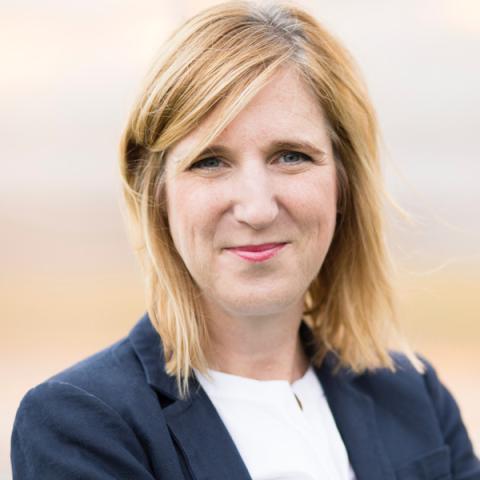

Director of the Institute on the Environment, University of Minnesota
Hellmann is the director of the University of Minnesota’s Institute on the Environment and the Ecolab Chair in Environmental Leadership, where she works to build a future where people and planet prosper together. Her research focuses on global change ecology, climate adaptation, and the reduction of greenhouse gas emissions. Widely published and a skilled communicator, Hellmann is a scientific pioneer routinely called upon by leading international media outlets to provide expert input on global change. In addition to several prestigious fellowship positions, she received the Climate Adaptation Leadership Award of the US Association of Fish and Wildlife Agencies. Follow Hellmann on Twitter, visit her website, and read her blog Director’s Almanac.
Hear more about ecosystem impacts in Unit 4, which digs into carbon sinks—and ways to keep them strong—around the world.
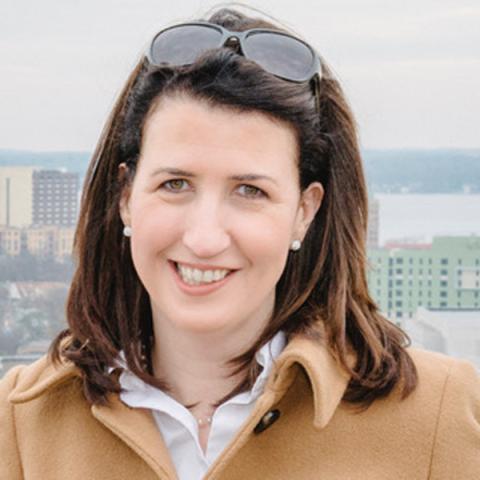

Gaylord Nelson Distinguished Professor, University of Wisconsin-Madison
Holloway is the Gaylord Nelson Distinguished Professor at the University of Wisconsin-Madison, jointly appointed in the Nelson Institute for Environmental Studies and the Department of Atmospheric and Ocean Sciences. She is a leading air quality scientist, working at the intersection of air quality, energy, climate, and public health. As Team Lead for the NASA Health and Air Quality Applied Sciences Team, Holloway connects NASA data with stakeholder interests in air quality management and public health. She is an award-winning leader and mentor who co-founded (and led) the Earth Science Women’s Network—a group supporting the scientists of today and welcoming a diverse community of scientists for tomorrow. Follow Holloway on Twitter and visit her online.
Hear more about cost-effective climate solutions in Unit 6, which covers changing infrastructure and innovating new technologies for a brighter future.
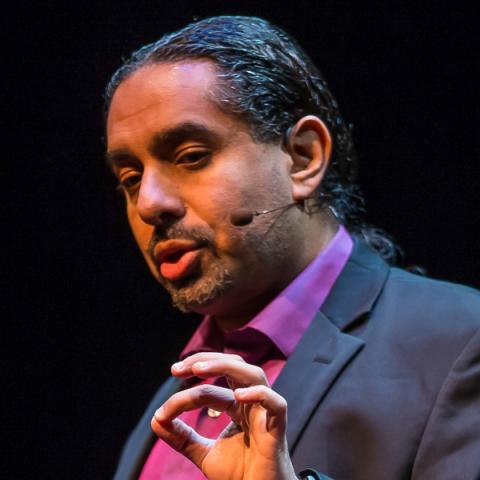

Angel investor, clean energy advocate, award-winning author
Naam is a pioneering thought leader focused on climate and energy, speaking frequently on the inevitability and increasing price advantage of clean energy. He serves as advisor and investor to clean energy, mobility, and climate-related startups around the world. Born in Cairo, Egypt before moving to the U.S. at age three, Naam began his career at Microsoft before moving on to work on clean energy and climate change. Naam has written five books, including the nonfiction bestseller The Infinite Resource: The Power of Ideas on a Finite Planet. Follow him on Twitter and visit his website.
Hear more about fascinating energy solutions in Unit 5, which outlines clear paths to safe, equitable, and comprehensive climate action.
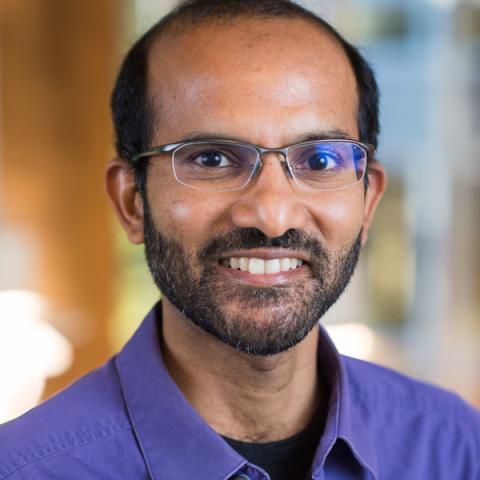

Professor and Canada Research Chair in Global Environmental Change and Food Security, University of British Columbia
Ramankutty, a professor and research chair at the University of British Columbia, leads a program that explores how humans use and modify the Earth’s land surface for agriculture—and how that implicates our global environment. Using research observations and numerical ecosystem models, he aims to find solutions to the problem of feeding humanity with minimal global environmental footprint. Ramankutty—a Leopold Leadership Fellow—contributed to the Millennium Ecosystem Assessment report and to the Fourth Assessment Report of the Intergovernmental Panel on Climate Change, and currently serves as Associate Editor of Environmental Research Letters. Follow Ramankutty on Twitter and visit his website.
Hear more about the sources of greenhouse gas emissions in Unit 2, which covers three need-to-know principles of equitable climate solutions.
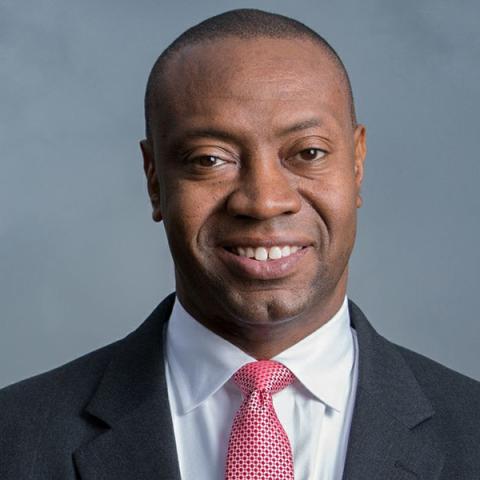

Georgia Athletic Association Distinguished Professor of Atmospheric Sciences and Geography, University of Georgia
Shepherd is a leading international expert in weather and climate and the Georgia Athletic Association Distinguished Professor of Atmospheric Sciences and Geography at the University of Georgia. He is the host of The Weather Channel’s award-winning Sunday talk show and podcast Weather Geeks, and a contributor to Forbes Magazine. Shepherd is a former NASA scientist and winner of numerous awards, including the prestigious AMS Helmut Landsberg Award for pioneering significant work in urban climate. Shepherd is frequently sought as an expert on weather, climate, and remote sensing—he routinely appears on leading broadcast programs around the world. Follow him on Twitter and visit his website.
Hear more about equitable climate action in Unit 1, which covers 50 years of stunning change—from food demand, water, population, ocean health, and beyond.


Assistant Professor, University of California, Santa Barbara
Dr. Stokes works on energy, climate, and environmental politics. Within American Politics, her work focuses on representation and public opinion; voting behavior; and public policy—particularly at the state level. Within environmental politics, she researches climate change, renewable energy, water and chemicals policy. Stokes’ book, Short Circuiting Policy, examines the role that utilities have played in promoting climate denial and rolling back clean energy laws. She contributed to the anthology, All We Can Save—a collection of essays written by influential women in the climate space, and co-hosts the podcast “A Matter of Degrees” with Project Drawdown alum Dr. Katharine Wilkinson. Follow Stokes on Twitter and visit her online.
Hear more about game-changing climate solutions in Unit 5, which outlines clear paths to safe, equitable, and comprehensive climate action.
Sign up to receive updates, provide ideas, and share how you will use Climate Solutions 101 in your classroom or community.
Climate Solutions 101 Presented by Project Drawdown was generously supported by Trane Technologies, Chris Kohlhardt, and Intuit.


These materials are copyright © 2021 Project Drawdown. All rights reserved.
Project Drawdown welcomes you to use and share unaltered information and materials created by Project Drawdown with proper attribution or citation. By using these materials, you signify your agreement to these terms of use. These materials are intended for educational purposes only.
Join the 85,000+ subscribers discovering how to drive meaningful climate action around the world! Every other week, you'll get expert insights, cutting-edge research, and inspiring stories.